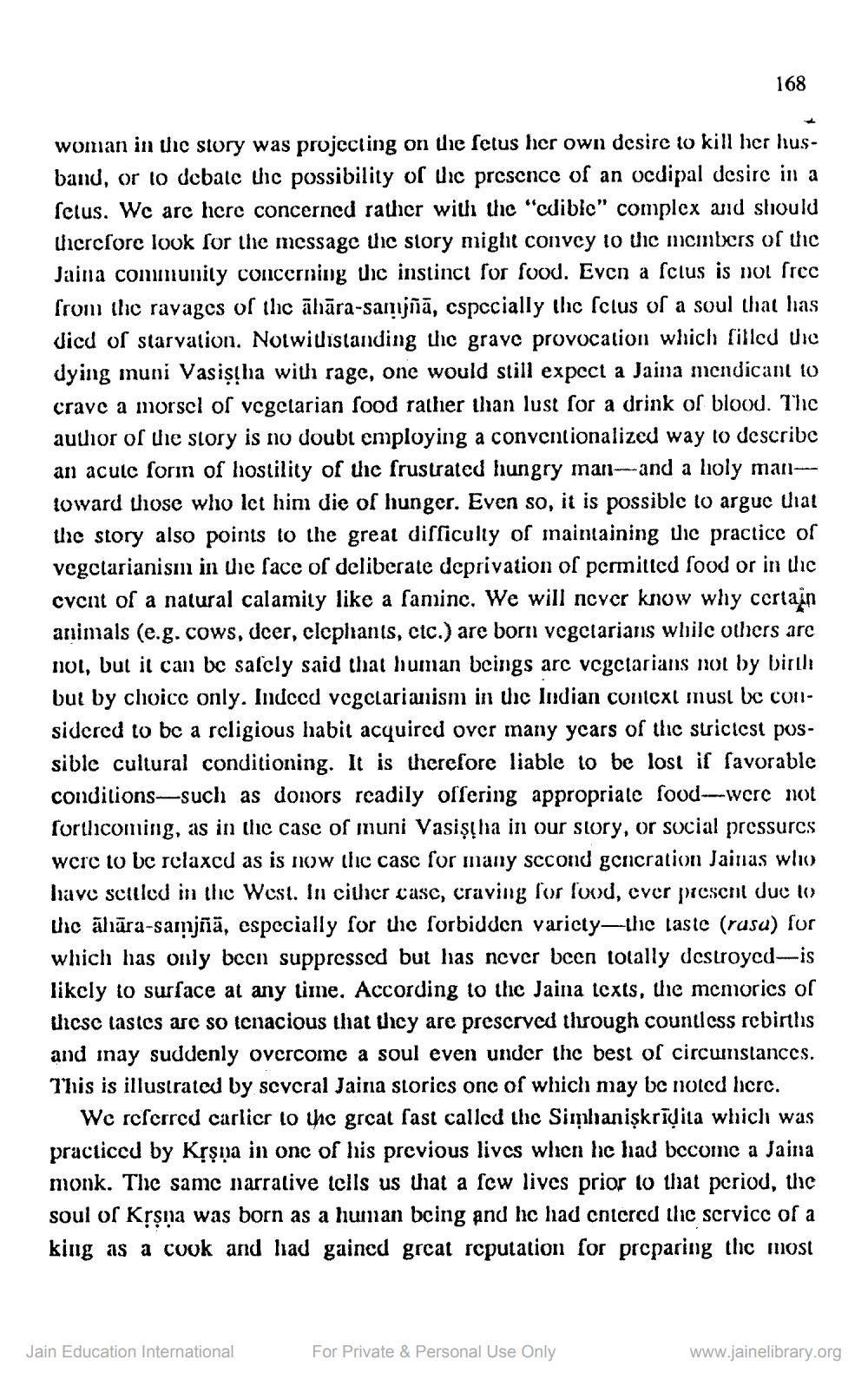________________
woman in the story was projecting on the fetus her own desire to kill her husband, or to debate the possibility of the presence of an ocdipal desire in a fetus. We are here concerned rather with the "edible" complex and should therefore look for the message the story might convey to the members of the Jaina community concerning the instinct for food. Even a fetus is not free from the ravages of the ahara-sanjñā, especially the fetus of a soul that has died of starvation. Notwithstanding the grave provocation which filled the dying muni Vasistha with rage, one would still expect a Jaina mendicant to crave a morsel of vegetarian food rather than lust for a drink of blood. The author of the story is no doubt employing a conventionalized way to describe an acute form of hostility of the frustrated hungry man-and a holy man--- toward those who let him die of hunger. Even so, it is possible to argue that the story also points to the great difficulty of maintaining the practice of vegetarianism in the face of deliberate deprivation of permitted food or in the cvent of a natural calamity like a famine. We will never know why certain animals (e.g. cows, deer, elephants, etc.) are born vegetarians while others are not, but it can be safely said that human beings are vegetarians not by birth but by choice only. Indeed vegetarianism in the Indian context must be considered to be a religious habit acquired over many years of the strictest possible cultural conditioning. It is therefore liable to be lost if favorable conditions such as donors readily offering appropriate food-were not forthcoming, as in the case of muni Vasiṣṭha in our story, or social pressures were to be relaxed as is now the case for many second generation Jainas who have settled in the West. In either case, craving for food, ever present due to the ahara-samjñā, especially for the forbidden variety-the taste (rasa) for which has only been suppressed but has never been totally destroyed-is likely to surface at any time. According to the Jaina texts, the memories of these tastes are so tenacious that they are preserved through countless rebirths and may suddenly overcome a soul even under the best of circumstances. This is illustrated by several Jaina stories one of which may be noted here.
168
We referred earlier to the great fast called the Simhaniṣkrīḍita which was practiced by Kṛṣṇa in one of his previous lives when he had become a Jaina monk. The same narrative tells us that a few lives prior to that period, the soul of Kṛṣṇa was born as a human being and he had entered the service of a king as a cook and had gained great reputation for preparing the most
Jain Education International
For Private & Personal Use Only
www.jainelibrary.org




